
1 WEALTHY WOMEN USED WET NURSES TO FEED THEIR OFFSPRING
Wealthy Roman women did not usually breastfeed their own children. Instead, they handed them over to a wet nurse - usually a slave or hired freedwoman who was contracted to provide the service. Soranus, the influential author of a second-century AD work on gynaecology, prescribed that a wet nurse's milk might be preferable in the days after the birth, on the grounds that the mother could become too exhausted to feed. He did not approve of feeding on demand, and recommended that solids such as bread soaked in wine should be introduced at six months. Soranus also pointed to the possible benefits of employing a Greek wet nurse, who could pass on the gift of her mother tongue to her charge.
Yet this flew in the face of advice from most Roman physicians and philosophers. They suggested that mother's milk was best - both for the child's health and moral wellbeing - on the grounds that wet nurses might pass on servile defects of character to the baby. These same men opined that women who did not suckle their own children were lazy, vain and unnatural mothers who only cared about the possible damage to their figures.
2 ROMAN FATHERS, NOT MOTHERS, USUALLY GOT CUSTODY OF THEIR CHILDREN AFTER A DIVORCE
Marriage was the grease and glue of Roman society, used to facilitate political and personal ties between families. However, marital ties could be severed at short notice when they were no longer deemed 'useful'.
Diese Geschichte stammt aus der September 2022-Ausgabe von History Revealed.
Starten Sie Ihre 7-tägige kostenlose Testversion von Magzter GOLD, um auf Tausende kuratierte Premium-Storys sowie über 8.000 Zeitschriften und Zeitungen zuzugreifen.
Bereits Abonnent ? Anmelden
Diese Geschichte stammt aus der September 2022-Ausgabe von History Revealed.
Starten Sie Ihre 7-tägige kostenlose Testversion von Magzter GOLD, um auf Tausende kuratierte Premium-Storys sowie über 8.000 Zeitschriften und Zeitungen zuzugreifen.
Bereits Abonnent? Anmelden
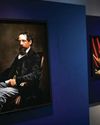
'Dickens's evocation of the fears, excitement and confusion of childhood is peerless'
DR LEE JACKSON ON WHY CHARLES DICKENS REMAINS RELEVANT TODAY
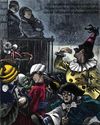
THE AUTHOR GOES ABROAD
Dickens expanded his horizons and boosted his fan-base by venturing overseas - but global fame came with a cost
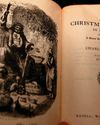
REVIVING THE FESTIVE SPIRIT
A Christmas Carol wasn't just a bestseller - it changed the way that Britons chose to mark the festive season
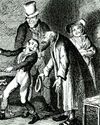
GIVING THE POOR A VOICE
From Hard Times to Oliver Twist, Charles Dickens used his pen to help illuminate the lives of the less fortunate

A JOURNEY THROUGH DICKENS'S LONDON
The works of Charles Dickens are synonymous with visions of Victorian London. We talk to Dr Lee Jackson about the author's love of the capital, and the locations that most inspired him
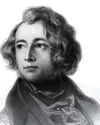
EXCEEDING EXPECTATIONS
Dr Lee Jackson chronicles Charles Dickens's journey from down-at-luck teenager to titan of Victorian literature

GIFTS, TREES & FEASTING
We take a journey through the photo archives to reveal how Christmas and its many traditions have been celebrated over the years - and around the world
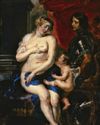
WHAT GREAT PAINTINGS SAY
We explore the story behind an allegorical painting that celebrates the triumph of love over hate, peace over war
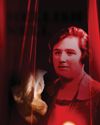
HELLISH NELL
Malcolm Gaskill delves into the life of Helen Duncan - the fraudulent Scottish medium whose ectoplasm-filled seances saw her ending up on the wrong side of the law

7 THINGS YOU (PROBABLY) DIDN'T KNOW ABOUT THE WHITE HOUSE
Presidential historian Dr Lindsay M Chervinsky reveals some of the most surprising facts about the world-famous US residence